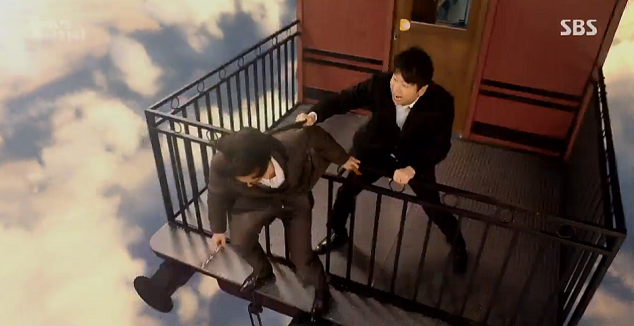Identity has a peculiar relationship with itself. According to art and literary theorists, the act of naming or otherwise describing something replaces the true nature of the object with a representation which accuracy and comprehensiveness are constrained by human limits. Yet in public consciousness, one may contend, this caricature tends to be mistaken for the real thing in the long run. Thus, when a political subject assumes a cultural or national identity, he may inadvertently lose sight of his deeper identity—that which sometimes transcends ethnic, geographical and other boundaries or at least popular perceptions of such boundaries.
In his novel Knulp, German-Swiss writer Hermann Hesse depicts the life of the eponymous wanderer, who is acquainted with numerous places, people and trades but feels satisfied with none of them. Knulp’s inability to adhere to any well-defined mode of living is so perturbing that he does not make for a remarkable wanderer either. Restlessness takes him away from familiar regions, yet homesickness settles in whenever he ventures to a foreign place such that he has to turn back. His mental image of lover is neither of his two previous romantic partners, but a non-existent figure resembling a hybrid of them. As he explains, each human being possesses a unique soul, which perceives the world in its own way. It can be close to other souls but not mix with them.
Not of us follow our hearts as closely as Knulp does, yet our life experiences, thought processes and psychological inclinations are probably messy enough that one’s complete set of beliefs, desires and behavior may not fall neatly into existing categories of identity either. Cross-cultural influences through convoluted political histories, transnational media, global professional networks, etc. may exacerbate this by seeping into societies and spreading from person to person and region to region without their origins always known. Therefore, as far as his psyche is concerned, a given Ruritanian is potentially 59% Ruritanian, 21% Dutch, 11% Chilean and 9% unclassifiable, in terms of stereotypical characteristics of such people. Even as patriotism and cultural pride stimulate a person to uphold all traits and customs traditionally associated with someone of his background, he may subconsciously find certain practices objectionable or even prefer his rivals’. Already, aspects of his actions may mirror theirs. The invocation of group identities based on cultural mentality and behavior in political rhetoric can thus be self-deceptive to some extent and detract from attention to inner conflicts and needs.
An alternative way to construct political identity from cultural membership or nationality is to leverage on common interests. There are various means of identifying and borrowing the power of ethnic and national interests, one of which would be to rally for acquisition of what one group lacks and the other possesses. A moral case can be made if the other party has deliberately deprived one’s group of assets or opportunities to obtain such assets. It is also possible to regard the other party’s achievements as no more than benchmarks for success. There is obviously a serious problem, however, when unwarranted resentment is incited to galvanize social movements.
More than that, Knulp gives one the idea that resentment would be a suboptimal way of emotionally coping with social comparison and hence less than ideal for the collective morale. From a modern realist’s point of view, Knulp is a cheating player in a largely cooperative system. Despite being able-bodied, he refuses to shoulder commitment for any task or person. His charm earns him the good will of many, who shelter and feed the vagabond, enabling him to keep up a more attractive appearance than peers who get their hands dirty to fill their families’ bellies. Yet, in line with the German literary tradition of portraying wanderers as symbols of liberation, Knulp’s cheerful presence gladdens the hearts of characters in the tale. In real-life political contexts, such a reaction is not always easy in the face of a competitor more powerful than you, but when successfully elicited, might go a long way toward improving diplomatic relations. The key is to envisage the competitor’s areas of superiority (freedom in Knulp’s case) as beacons of hope, because chances are the alternative could have been that one’s group’s (unsatisfactory) performance is already at the top of the game yet it sees no concrete sign that improvement is possible.
Admittedly, these arguments do not eliminate tribal instincts or the need to push for rights and recognition from the international community. One’s ethnicity and nationality may not align perfectly with his identity, but they may approximate it better than other ethnicities and nationalities. Perhaps, too, people simply care more, on average, for those sharing their backgrounds. Likewise, Knulp has some level of allegiance to certain familiar professions, people and place. Although he does not charge for his poems and songs, he is often effectively an itinerant artist. There is one definite person he wants to see before he dies—his first love. When urged to commit himself to a hospital, he prefers the one in his hometown of Gerbersau instead of the closer hospital in its neighbor, Oberstetten. Given these inclinations, it seems possible, even if painful, for Knulp to hew to particular conventional categories of identity for the practical purpose of safeguarding his interests.
But that might be a rather unambitious choice. Knulp could have secured his autonomy better by allying with advocates of more substantial end-of-life rights. If he were to fight for his faithless first love all over again, he might have more luck fighting also alongside other boys for trustworthy relationships. And without her betrayal, he would not have so much psychological difficulties rooting himself to a stable set of place, people and vocation. Those are, of course, somewhat fanciful options, just as Knulp is no manual on how to navigate life, at most a guide to accepting personal failures and a defense of individuality. In our hyperconnected world, nevertheless, we do have the resources to move beyond our origins and communities to empathize and work together with more individuals in plights similar to ours. Indeed, we may find that burnt-out caregivers in a pair of middle-income countries, for instance, have more in common with one another than with their respective compatriots, although the same is perversely true with anti-social troublemakers. In short, dividing ourselves along racial and geographical lines is not unquestionably the most effective way to affirm personal identity and advance self-interests.
On the other hand, whatever our distinctive identities and interests may be, a large component of personal identity stems from shared humanity. Hence, in the spirit of universal brotherhood, an individual would ideally prefer his neighbors and distant cousins to fare better than him, given the same (miserable) living conditions on his part, not the potentially forlorn opposite. Being one with the global community also means that it makes sense to want the world to be a place where a diversity of people, possibly including those with ideas and habits complementary to one’s, can flourish. While many of Knulp’s friends disagree with his lifestyle, they benefit from the silliness, joy and longing for freedom he spreads around. That, God informs Knulp during his final moments, is one reason why his existence has been worthwhile.
Knulp has been quoted and used as the name of an ex-gangster protagonist’s restaurant in the 2016 Korean comedy Please Come Back, Mister, a novel-to-screen adaptation depicting the adventures of two middle-aged men returning to life in new bodies for two months to take care of their loved ones. A production at times soul-stirring and at times too heavy with vulgar references and emphases on looks, watching the drama can feel like as helpless an experience as that of denouncing the general validity of words using words. Neither novel, nor drama, nor theory, nor love of culture or country is unacceptable. It is just that absolute thinking is dangerous, and we do not always need to be uncritically defensive of what we treasure or put down others to boost our positions. They are, in invisible ways, part of ourselves.






Special thanks to the following bloggers for responses to the following temporary posts:
1. The preview of this post mommycookforme
mommycookforme Mitta
Mitta elle
elle theotheri
theotheri Jen from MyAlternateUniv
Jen from MyAlternateUniv dosirakbento
dosirakbento Tasty Eats Ronit Penso
Tasty Eats Ronit Penso Kay
Kay
–
–
–
–
–
–
–
–
2. “Passing the Baton …” (additional responses)
 dramalandloverj, who wrote:
dramalandloverj, who wrote:
– “Thank you for the sneak peek of the dramas you’ll possibly be writing about:) Now I’m curious about Love Me, If You Dare and Pied Piper!😄”
– “I like the story development, plot and the acting is good as well but I agree with you, it takes time to get invested into the characters and their motivations. I’m slowly catching up now ^^ Keep watching!”
– “I really hope you’ll come to like it:) To me I think it’s good at least😄 I just got started with Descendants of the Sun (which everyone seems to be watching right now) haha. I want to check out Neighbourhood Lawyer as well, but haven’t got round to it. Same goes for Page Turner!”
– “I’m glad to hear that! All the more I should check Page Turner out now. Ah, out of her works I’ve only seen Get Karl! Oh Soo-jung and I Hear Your Voice. But it’s awesome that the story is good😀 I agree with you on that. Same goes for directors/PDs, even with the talent pool of actors becoming bigger. It all boils down to a good team:)”
Coincidentally, Jen from MyAlternateUniv wrote an uplifting post on identity and sacrifice some time ago: Identity – Missing the Bells and Whistles. It may chase away the Monday blues.
Jen from MyAlternateUniv wrote an uplifting post on identity and sacrifice some time ago: Identity – Missing the Bells and Whistles. It may chase away the Monday blues.